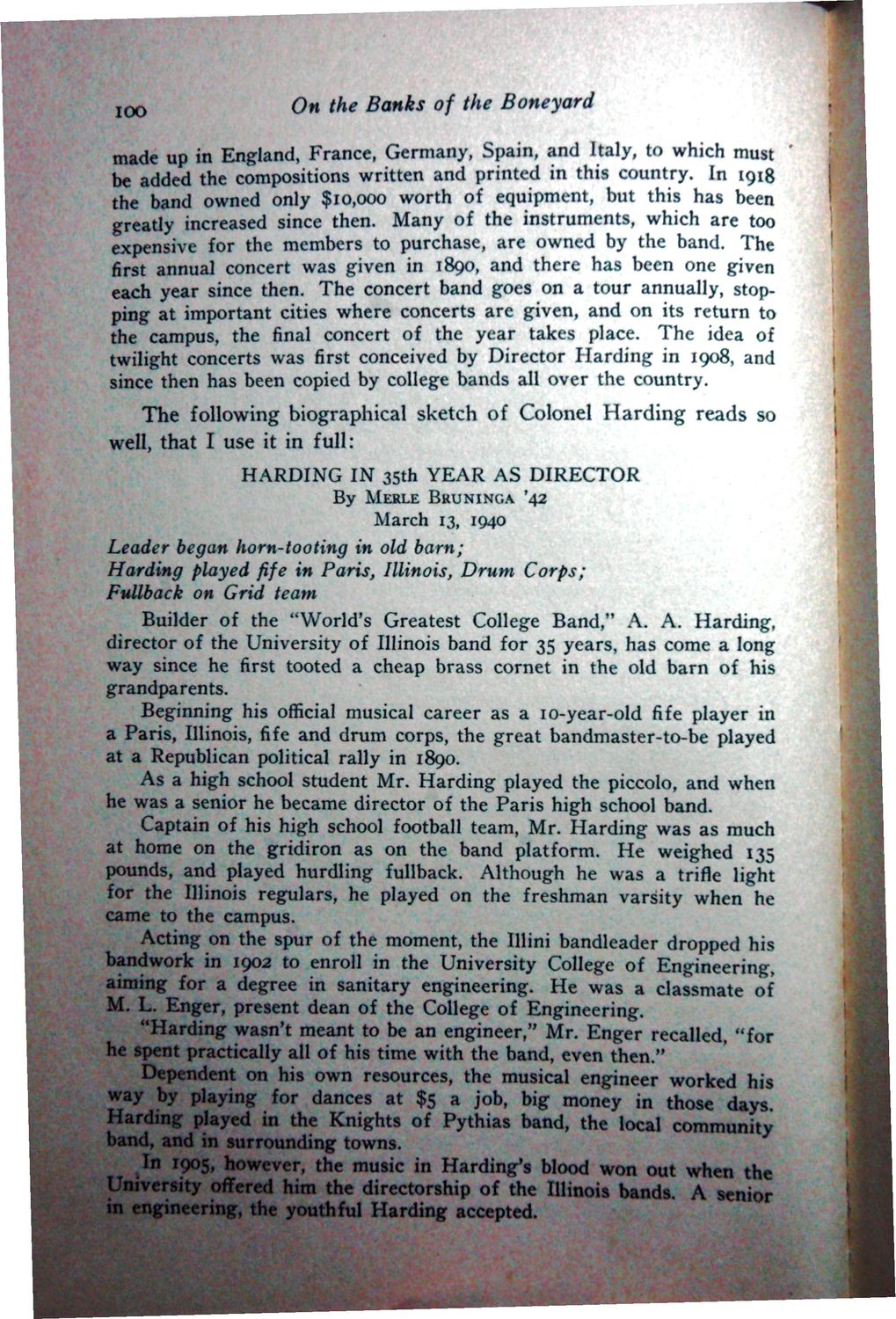| |
| |
Caption: Book - Banks of the Boneyard (Charles Kiler)
This is a reduced-resolution page image for fast online browsing.

EXTRACTED TEXT FROM PAGE:
100 On the Banks of the Boneyard England, France, Germany be added the compositions wn fKA hsnrl nwnpd onlv $10,000 In 1918 greatly increased since then. Many of the instruments, which are too for the members to purchase, are owned by the band. The 8oo; each mportant inal concert of the year takes place. The idea of campus /as first conceived by Director Harding in 1908, and o since then has been copied by college bands all over the country. The following biographical sketch of Colonel Harding reads so well, that I use it in full: HARDING IN 35th YEAR AS DIRECTOR By MERLE BKUNINGA '42 March 13, 1940 Leader began horn-tooting in old barn; Harding played fife in Paris, Illinois, Drum Corps; Fullback on Grid team Builder of the "World's Greatest College Band," A. A. Harding, director of the University of Illinois band for 35 years, has come a long cornet grandparents Beginning his official musical career as a 10-year-old fife player in a Paris, Illinois, fife and drum corps, the great bandmaster-to-be played at a Republican political rally in 1890. As a high school student Mr. Harding played the piccolo, and when school football at home on the gridiron as on the band platform. He weighed 135 pounds, and played hurdling fullback. Although he was a trifle light for the Illinois regulars, he played on the freshman varsity when he came to the campus. Acting on the spur of the moment, the Illini bandleader dropped his bandwork in 1902 to enroll in the University College of Engineering, aiming for a degree in sanitary engineering. He was a classmate of M. L. Enger, present dean of the College of Engineering. "Harding wasn't meant to be an engineer," Mr. Enger recalled, "for he spent practically all of his time with the band, even then." Dependent on his own resources, the musical engineer worked his way by playing for dances at $5 a job, big money in those days. band, the local band, and in surrounding towns. 1905, however, the music in Harding's blood won out when the sity offered him the directorship of the Illinois bands. A senior neering, the youthful Harding accepted. & -A _
| |